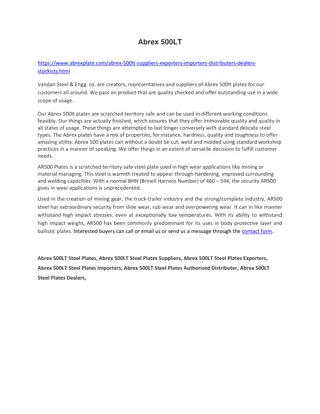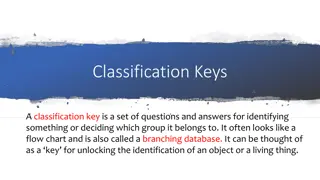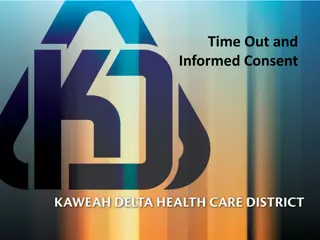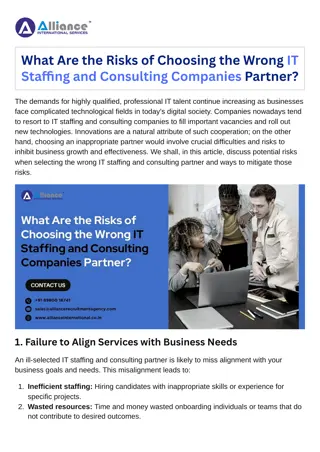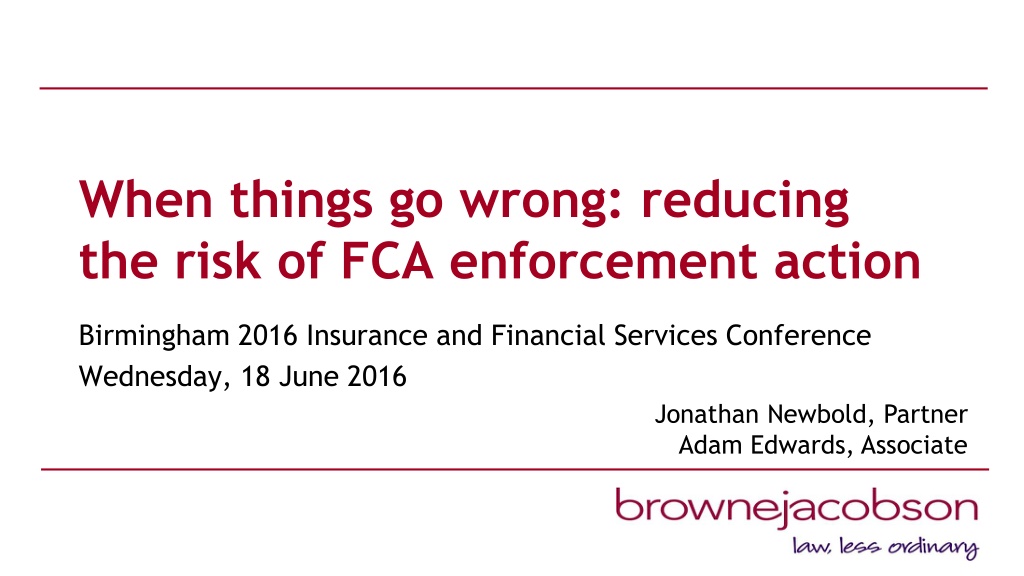
Managing Financial Crime Risks and FCA Enforcement Insights
Learn about reducing the risk of FCA enforcement actions and managing financial crime risks effectively. Gain insights into the importance of appropriate systems and controls, personal accountability, and the principles guiding firm operations. Explore practical tips to handle regulatory failings and understand the FCA's expectations regarding risk management in the financial services sector.
Download Presentation

Please find below an Image/Link to download the presentation.
The content on the website is provided AS IS for your information and personal use only. It may not be sold, licensed, or shared on other websites without obtaining consent from the author. If you encounter any issues during the download, it is possible that the publisher has removed the file from their server.
You are allowed to download the files provided on this website for personal or commercial use, subject to the condition that they are used lawfully. All files are the property of their respective owners.
The content on the website is provided AS IS for your information and personal use only. It may not be sold, licensed, or shared on other websites without obtaining consent from the author.
E N D
Presentation Transcript
When things go wrong: reducing the risk of FCA enforcement action Birmingham 2016 Insurance and Financial Services Conference Wednesday, 18 June 2016 Jonathan Newbold, Partner Adam Edwards, Associate
Outcomes 1. Gain insight into what the FCA can do when faced with serious regulatory failings 2. Understand why appropriate systems and controls are more important than ever before 3. Learn about the relevant systems and controls the FCA will expect you to have in place now 4. Take away practical tips to consider if things do go wrong
FCA finds small firms need to manage financial crime risks more effectively FCA Press Release from November 2014 Firms must take their responsibility to reduce the risk of financial crime seriously. Significant improvements are still required in this area. Most intermediaries controls failed to manage bribery and corruption risk effectively
Personal accountability Focus on: Meeting the spirit of the rules rather than narrow focus on what the letter of the law requires Focus on outcomes rather than precisely defining what conduct falls within a particular rule Good business behaviour, from the top down embedded into the culture of firms Taking ownership of roles and responsibilities
Systems & controls: the principles and approach Principle 3: A firm must take reasonable care to organise and control its affairs responsibly and effectively, with adequate risk management systems. Principle 6: A firm must pay due regard to the interests of its customers and treat them fairly.
Systems & controls: the principles and approach SYSC 3 & 4: A firm must take reasonable care to establish and maintain such systems and controls as are appropriate to its business. A firm must have: Robust governance arrangements Clear organisational structure Transparent and consistent lines of responsibility Proportionate and risk based approach according to nature, scale and complexity of business.
Data Security: effective systems & controls? Why is data security so important in financial services? Financial services firms by their nature hold a great deal of sensitive personal/confidential data on customers The FCA will take action against firms even where there is no evidence of actual compromise of customer information Merchant Securities Group Ltd A broad issue: Not just a question of data protection TCF and financial crime as well Data security should be treated as a key specific risk subject to own governance, policies and procedures and risk assessment
Data Security: effective systems and controls in practice Some initial questions firms should be asking themselves: How is responsibility for data security apportioned? Are systems and controls backed up by senior manager accountability? How does the firm keep track of its digital assets? Governance: managing systems and controls Open and honest culture of reporting data security incidents and issues Are incident response plans clear? Written policies and procedures even within small firms
Data Security: effective systems and controls in practice Staff: Recruitment and vetting at all levels junior employees are as much a risk as more senior members of firms Ongoing vetting during employment Training and awareness Third party suppliers: Cleaners, security guards, IT contractors etc. Give consideration to their systems and controls.
Data Security: effective systems and controls in practice Access to customer data: Access rights least-privilege basis Access profiles for specific roles in business To be considered at recruitment, change of role and exit Passwords and user accounts Monitoring access to customer data Back-up, physical security and disposal
Financial crime: effective systems and controls? Same overriding principles and approach apply FCA s financial crime guide emphasis on senior management involvement/responsibility Some questions for firms to be asking: What risks apply? Who has ultimate responsibility? Are there clear reporting lines? Resources are they adequate? Alparicase
Financial crime: effective systems and controls in practice Management Information Sufficient to understand risks Regular and ad hoc Impact of legal/regulatory developments Effectiveness of systems & controls Staff expenses, gifts etc. Business relationships new, terminations & sanctions Quality of oversight Senior management should challenge financial crime efforts. Smaller firms external support
Financial crime: effective systems and controls in practice Risk assessment: Business-wide Proportionate and targeted Individual relationships Regular review/continuous currency Coutts & Company case
What might increase the risk of FCA enforcement? Lack of co-operation and transparency Misleading the regulator Fail to identify the issue yourself Bank of Beirut example
How to minimise the risk of FCA enforcement Co-operation Transparency The Aviva Investors example Robust systems and controls that identify problems Pro-activity

